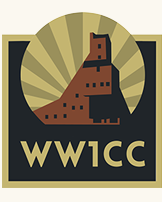Event Title
Keynote: African American Experience in WWI and Aftermath
Location
Rozsa Center for the Performing Arts
Event Website
http://ww1cc.mtu.edu/2018/08/the-african-american-experience-in-world-war-i-aftermath/
Start Date
28-9-2018 7:30 PM
End Date
28-9-2018 8:30 PM
Description
The First World War occurred at the height of white supremacy, segregation, and lynching and race riots in the United States. Yet the wartime years appeared to offer African Americans the occasion to escape the oppression they suffered in the South for better jobs and living conditions in the North and West. African Americans further viewed the war as an opportunity to fight for their country again, as they had in all its previous wars, in order to prove to white Americans that they merited equal citizenship rights. When African Americans consequently participated in the war effort on the home and fighting fronts, how did white Americans respond to their efforts? Ultimately, how did the war affect race relations and the conditions of African American life in the postwar United States?
Keynote: African American Experience in WWI and Aftermath
Rozsa Center for the Performing Arts
The First World War occurred at the height of white supremacy, segregation, and lynching and race riots in the United States. Yet the wartime years appeared to offer African Americans the occasion to escape the oppression they suffered in the South for better jobs and living conditions in the North and West. African Americans further viewed the war as an opportunity to fight for their country again, as they had in all its previous wars, in order to prove to white Americans that they merited equal citizenship rights. When African Americans consequently participated in the war effort on the home and fighting fronts, how did white Americans respond to their efforts? Ultimately, how did the war affect race relations and the conditions of African American life in the postwar United States?
https://digitalcommons.mtu.edu/ww1cc-symposium/program/program/2


Comments
Dr. John H. Morrow, Jr., Franklin Professor of History at The University of Georgia, earned his BA with Honors in History from Swarthmore College and his PhD in Modern European History from the University of Pennsylvania. In 1971 Professor Morrow became the first African American faculty member in the College of Arts and Sciences at the University of Tennessee, Knoxville, where he taught for seventeen years. Morrow was invited to join the faculty of the University of Georgia in 1988 as Franklin Professor. In 1988-89 Morrow was the Charles A. Lindbergh Visiting Professor at the National Air and Space Museum (NASM), where he consulted on the design of the present gallery on World War I aviation. Morrow has been an invited lecturer at such institutions as the National War College, the Air War College, and the U.S. Military Academy, and he has chaired the History Advisory Committee to the Secretary of the Air Force, the Research Advisory Committee of the National Museum of American History (NMAH), and the Search Committee for the Director of the NMAH. He is the author of German Airpower in World War I (1982); Building German Airpower (1976); The Great War in the Air: Military Aviation from 1909 to 1921 (1993 [2009]); A Yankee Ace in the RAF. The World War I Letters of Captain Bogart Rogers (1996); The Great War: An Imperial History, 2004; and (with Jeffrey T. Sammons), Harlem’s Rattlers and the Great War: The Undaunted 369th Regiment and the African American Quest for Equality (2014). Dr. Morrow is currently writing a manuscript on the global and imperial nature of the Second World War.